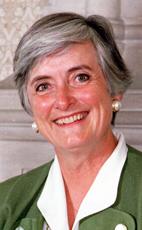Mr. Speaker, six months after historic elections in South Africa, I am taking this moment to speak about the government's interim and new program which Canada is beginning to implement in South Africa.
As members know, Canada has a long and honourable tradition of support to the people of South Africa. What a joy it was for those of us Canadians who were privileged to participate in the election process of April and May.
However, South Africa needs constant support if it is to successfully emerge as a democratic society, prosper economically, and develop the potential of its population as a whole.
The transition from apartheid and conflicts to reconciliation and rebuilding will bring new challenges.
I am presenting to the House today an outline of Canada's new three-year bilateral program with an allocation of up to $20 million for the next fiscal year.
In the past resources from the Canadian International Development Agency as well as from Canadian NGOs, churches, academia, businesses, professional groups and unions have been critical in facilitating the heroic strides of the South African people toward a more democratic society.
For a number of years we have worked with South African groups disadvantaged by apartheid to lay the basis for their involvement in their country's affairs.
CIDA has extended its special South Africa fund. This fund will next year make available $2.5 million to Canadian organizations which have already established strong linkages with partners in South Africa.
With the end of apartheid and the inauguration of Nelson Mandela as president, the Canadian government has acted promptly to re-establish bilateral relations in a number of areas. We have extended the general preferential tariff to South Africa. A Canadian trade office was opened in Johannesburg in February 1994 during a visit by the Minister for International Trade.
Subsequently Canadian exports to South Africa for the first six months of the year were about 75 per cent higher than they were for the same period last year. A significant portion of these exports is in the form of manufactured and high technology Canadian products.
Throughout the transition period there has been a strong level of interest in Canadian models of government and experiences. This interest continues.
In July of this year the South African minister of constitutional development led a high level delegation of ministers, MPs and academics to study our system. This week another group of South African public servants is visiting Canada to acquaint themselves with how we develop our foreign policy.
Moreover, South Africa asked for and was given advice on various issues, especially on the refugee status claims processing system it is setting up. Canada offered to help South Africa become an active member of several multilateral organizations.
For our efforts and our expertise Canada has been singled out. On September 1 South Africa's minister of arts, culture, science and technology, Dr. B.S. Ngubane, speaking in his country's Parliament acknowledged the contribution through Canada's International Development Research Centre to the creation of a science and technology initiative.
The government has made a commitment to open the process of foreign policy making to all Canadians. In May of this year we held a major consultation in Ottawa and invited representatives of academia, the business community, church groups, unions and developmental non-government organizations to discuss priorities for the new South Africa. Their input has been vital in establishing the four key priorities for the next three years in South Africa.
The first priority is governance. We will continue with our $10 million public service policy project funded by CIDA and managed by the International Development Research Centre. In addition we will begin more intensive training of senior civil servants and government officials from among groups previously excluded from top government positions.
The second priority is human resource training to improve the education sector and correct the past injustices of apartheid. As we all know, it is critical to raise the general skill level of the population. To work efficiently, a society needs a more open and tolerant political culture.
Third, we will have strengthened civil society. With the transition to a new government many of the old organizations which were organized around resistance now need to transform themselves into bodies which can represent their constituents in a more peaceful but effective manner. We will support them in making this transition.
The fourth priority will emphasize economic growth in South Africa with a particular focus on the participation of black business people in various sectors of the economy as well as the consolidation of Canadian linkages.
We believe that linking our four priorities with the help of all our Canadian partners is the only way Canada can ensure coherent, broad based development which will promote enduring peace and security in South Africa. We need to protect and nourish the South African beacon of hope on the African continent for the sake of all on that continent.
I thank all Canadians for their collaboration in this process.

